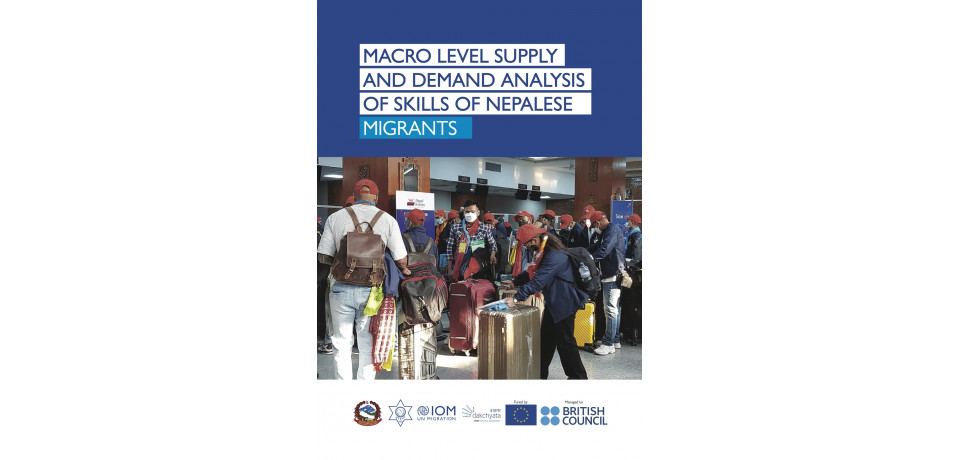Macro Level Study on Market Diagnostics and Supply and Demand of Skills of Nepali Migrant Workers
Objectifs de Développement Durable Connexes et Objectifs du Pacte Mondial sur les Migrations
Remittances take up a significant share in Nepal's GDP. It is observed that there has been an increasing trend of emigrants in the last two decades. The emigrants share in the population increased from 3.3 per cent in 2001 to 7.3 per cent in 2011 which has now slightly increased to 7.4 per cent in 2021. Many Nepalis go abroad every year for better work opportunities, while many also return to Nepal with valuable skills and knowledge. Especially due to the impact of the COVID-19 pandemic, there has been an increasing number of returning migrants in Nepal, which brings a demographic dividend to boost local economy.
Aimed at optimizing this development opportunity, this report analyzes macro level supply and demand of skills in domestic and destination countries. It captures the current migration landscape of Nepal, existing and emerging destination countries, existing skill training system, recruitment process and prevailing gaps along with recommendations to address the gaps.
This report is prepared through secondary and primary research (surveys) followed by validation of key findings through provincial consultations. The secondary research harnesses the existing reports from government entities and various news articles and studies. The primary research involves interaction with destination countries’ stakeholders along with interview of migrants, training institutions, government officials, recruitment agencies and other key stakeholders.
This report is a knowledge product of the project “Generating the Evidence for Future Skills Needs of Migrant Workers” part of the Dakchyata: TVET Practical Partnership project managed by British Council and financed by the European Union.
